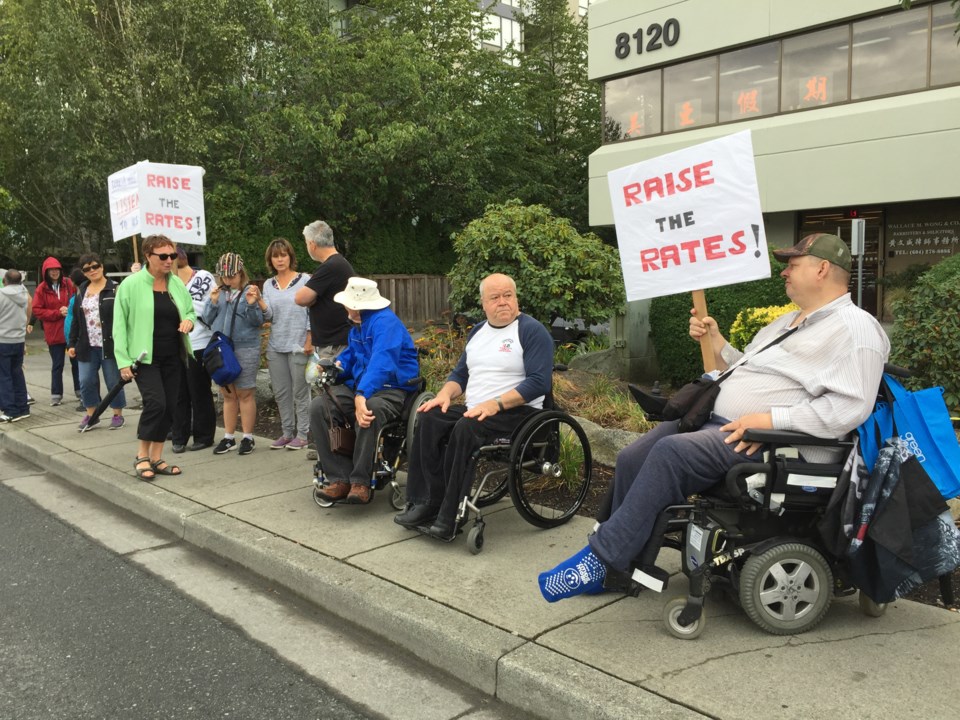Anti-poverty advocates and members of the Richmond Centre for Disability say a decision by the B.C. government to scrap an annual, subsidized bus pass for people with disabilities means an otherwise important increase to disability assistance rates will have little to no effect for society’s most vulnerable.
“We want to emphasize that the Persons with Disabilities (PWD) rate has not increased in a long time, and many PWDs are facing continual increased pressure of making ends meet, even for basic daily necessities,” said RCD executive director Ella Huang, via email.
Huang’s non-profit group joined Richmond’s Poverty Response Committee on Thursday afternoon to protest outside the office of Richmond Centre MLA Teresa Wat.
“People with disabilities already deal with significant challenges and are disproportionately represented in people experiencing the effects of poverty,” said De Whalen, the committee’s chair.
“Hiking the bus pass fee will force them to choose between paying for food, paying their rent or having access to transit. Implementing this cost increase is both cruel and antithetical to good governance.”
The rate changes came into effect last Thursday, following the government’s announcement in June.
The Ministry of Social Development and Social Innovation scrapped an annual $45 PWP bus pass and instead is now giving people with disabilities a monthly $52 transportation subsidy, in addition to a $25 increase to the monthly disability assistance rate (previously set at $906).
The Ministry stated the changes provided more flexibility and were more equitable, considering about half of the people receiving disability assistance (a reported 45,000 people) do not receive any transportation support at all.
Therefore, assistance recipients will have the choice of receiving the transportation subsidy for their monthly bus pass, or have that $52 given to them in cash, boosting their monthly assistance from $931 to $983.
Huang said a bigger rate increase was needed. As it stands now, those in need of a bus pass may forgo it and use the extra $52 for food, shelter and clothing.
“This will increase their isolation and minimize their community participation, which is integral to their overall well-being, mental health and connection to society,” said Huang.
“We do not support a change that would create a situation subjecting PWDs to such a dilemma where they have to choose among two equally important issues in life.”
The news is even worse, said Whalen, for those who could not use public transit and required the now scrapped annual Special Transportation Subsidy, which cost $66 for the year.
“Their (overall) increase is merely $11 a month,” said Whalen, of what she describes as a “clawback.”
Whalen noted it has been almost a decade since the government has increased income assistance and disability rates.
Whalen called on the government to bring back the $45 annual bus pass for people with disabilities and transfer the $52 monthly credit to the assistance rate for everyone. Additionally, the government should raise the rates to reflect the existing costs of living. Furthermore, disability assistance rates should be indexed to inflation, she added.
A Change.org petition, started by Inclusion BC, stated the assistance rate has increased by $120 since 2001. The non-profit advocacy group for the disabled wants that rate to be set at $1,200. Over 15,000 people have signed the petition.
Those on assistance are allowed to earn $9,600 in annual income (the Annual Earnings Exemption) before the government deducts their rate, dollar for dollar.



